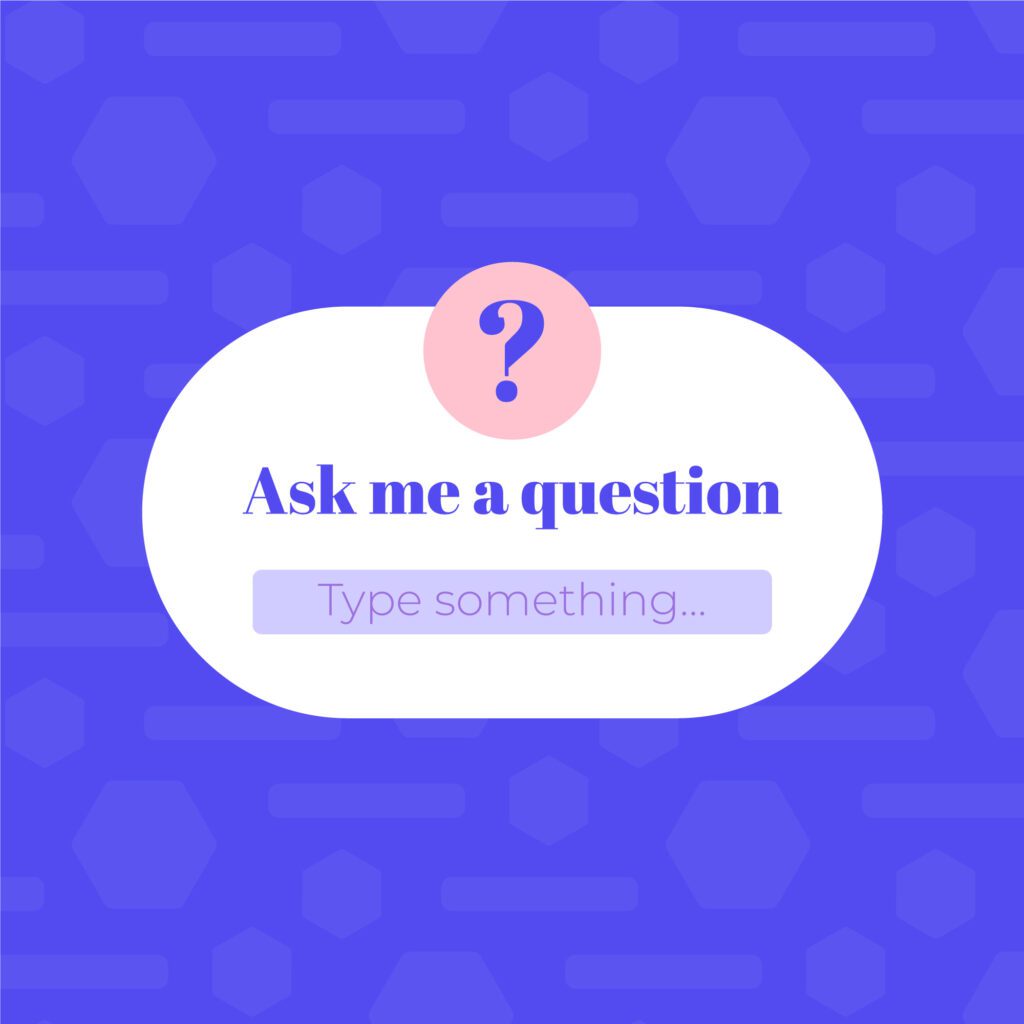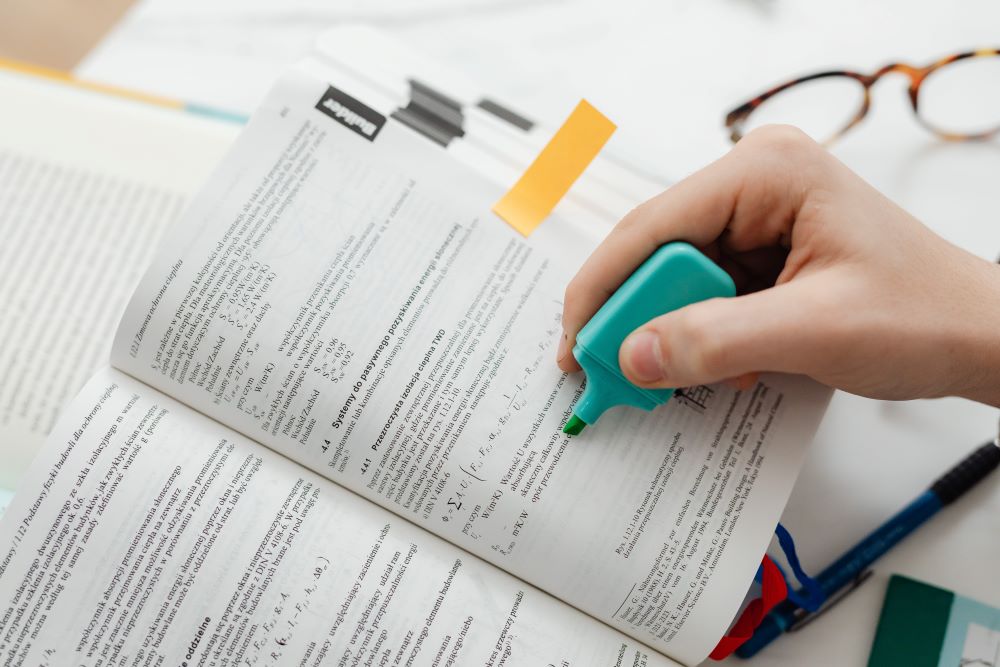
The interrogative type sentences in French or the questions
We use the Interrogative type sentences to formulate a question.
There are three kinds of interrogative type sentences:
– The sentence with total interrogation:
– Sentences with alternative question
– And the sentence with partial questioning.
These three types of sentences always end with a question mark.
The total questioning
- Est-ce qu’ils ont acheté des billets pour le spectacle? (Did they buy tickets for the show?)
The question concerns the entire sentence and can be answered with “yes” or “no”.
Alternative interrogation
- Ont-ils acheté les billets pour le spectacle ou ont-ils oubliés ? (Did they buy the tickets for the show or did they forget?)
It offers a choice on several elements and does not contain question words.
Partial interrogation
- Quand ont-ils acheté les billets? (When did they buy the tickets?)
The question relates to a specific element and is not answered with “yes” or “no”.
It begins with an interrogative word:
- Pronoms (pronoun) : qui, que, quoi, lequel (who, that, what, which)
- déterminant (determiner): quel+nom (what+noun)
- adverbes (adverbs): où, quand, comment, pourquoi, combien (where, when, how, why, how much)
The main constructions of the total interrogation

Ask me a question in French (Interrogative type sentences)
The interrogative sentence has a different construction than the declarative sentence but the declarative sentence serves as a basic model.
How to construct a sentence containing a total question:
- Add “est-ce que” (is it that) to the basic sentence;
Basic sentence: Ils ont acheté des billets pour le spectacle (They bought tickets to the show).
Sentence with total question: Est-ce qu’ils ont acheté des billets pour le spectacle? (Did they buy tickets for the show?)
- move the subject pronoun of the model sentence after the verb (or the auxiliary);
Basic sentence: Ils ont acheté des billets pour le spectacle.(They bought tickets to the show).
-
- Ont-ils acheté des billets pour le spectacle? (Did they buy tickets to the show?)
- after the verb (or the auxiliary), add the personal pronoun which replaces the subject of the model sentence.
Basic sentence: Tes amis ont acheté des billets pour le spectacle (Your friends bought tickets)
-
- Tes amis ont-ils acheté des billets pour le spectacle? (Did your friends buy tickets to the show?)
The personal pronoun added after the verb (or the auxiliary) is linked to the verb by a hyphen.
The pronoun that begins with a vowel (il/elle/on; ils/elles) (he/she/on; they/them) is linked to the verb by a hyphenated t (-t-) if this verb ends in -e, -a or -c. Example: A-t-elle acheté des billets pour le spectacle? (Did she buy tickets to the show?)
How to form a question containing a partial query.
Here, I give you the main ways to form a question (Interrogative type sentences) containing a partial interrogation.
If the question relates to the subject, you must use interrogative pronouns
The interrogative pronouns are: qui ou qui est-ce, que, quoi, lequel, laquelle…(who or who is it, that, what, which, which…) before the verb.
Basic sentence: Tes amis ont acheté deux billets dimanche.(Your friends bought two tickets on Sunday.)
The partial query:Qui a acheté deux billets dimanche? (Who bought two tickets on Sunday?
Or: Qui est-ce qui a acheté deux billets dimanche? (Who bought two tickets on Sunday?)
Or Lesquels de tes amis ont acheté deux billets dimanche? (Which of your friends bought two tickets on Sunday?)
-
Use an interrogative adverb
You add an interrogative adverb like Que, Quand, Combien et est-ce que (What, when, how much) and is that to the model sentence (unless the question relates to the subject).
Basic sentence: Tes amis ont acheté deux billets dimanche (Your friends bought two tickets on Sunday.
The partial query: Qu’est-ce que tes amis ont acheté dimanche? (What did your friends buy on Sunday?)
Quand est-ce que tes amis ont acheté deux billets? (When did your friends buy two tickets?)
Combien de billets est-ce que tes amis ont achetés dimanche?(How many tickets did your friends buy on Sunday?)
• Use an interrogative adverb
Use an interrogative adverb and move the subject pronoun of the base sentence after the verb or auxiliary.
Basic sentence: Ils ont acheté deux billets pour le spectacle, dimanche.(They bought two tickets for the show on Sunday.)
Qu’ont-ils acheté dimanche? (What did they buy on Sunday?)
Quand ont-ils acheté deux billets pour le spectacle? (When did they buy two tickets to the show?)
Combien de billets ont-ils achetés dimanche? (How many tickets did they buy on Sunday?)
Pour quel spectacle ont-ils acheté deux billets dimanche?(What show did they buy two tickets for on Sunday?)
• Use an adverb or interrogative pronoun
Use an interrogative adverb or pronoun and add, after the verb or auxiliary, a pronoun that takes up the subject of the model sentence.
Basic model: Tes amis ont acheté des billets pour le spectacle.(Your friends bought tickets to the show.)
Quand tes amis ont-ils acheté des billets pour le spectacle?(When did your friends buy tickets to the show?)
Combien de billets tes amis ont-ils achetés dimanche? (How many tickets did your friends buy on Sunday?)
Pour quel spectacle tes amis ont-ils acheté deux billets dimanche? (What show did your friends buy two tickets for on Sunday?)
You can see that to construct a partial interrogative sentence that focuses on a single specific element of the sentence, you must use interrogative markers such as Qui…?, Que…?, Quand…?, Où…?, Pourquoi…?, Comment…?, Quel…?, etc. (Who…?, What…?, When…?, Where.. .?, Why…?, How…?, What…?, etc)., And before the verb, and the subject if applicable, to indicate what the question is about.
Now, your exercises to anchor what you have just read:

Learn about interrogative sentence in French.
Interrogative type sentences exercises
Drill 1:
Ask a question about the underlined part of each sentence is in simple form -ex: J’ai des cigarettes > As-tu des cigarettes? (I have cigarettes) (Do you have cigarettes?), either in complex form – ex: Mon père adore les vieux films (My father loves old movies) > Qu’est-ce que ton père adore? (What does your father love?)
1.Les lapins sauvages sont très agressifs.
- Notre train part a cinq heures.
- Le président prévoit des changementspour 2024.
- J’ai rêvé d’un monde meilleur.
- Corinne veut rencontrer Léonard Cohen.
- Le premier ministre a démissionné.
- Les Américains s’attendaient à l’apocalypse.
- L’équipe d’Australie est championne du monde de rugby.
- Je luiécris souvent.
Réponses
- Qu’est-ce qui est très agressif ?
- Notre train part-il à cinq heures ? ou A quelle heure part notre train ?
- Qu’est-ce que le président prévoit pour 2024 ? ou Que prévoit le président pour 2024 ?
- De quoi as-tu rêvé ?
- Qui Corinne veut-elle rencontrer ?
- Le premier ministre a-t-il démissionné
- A quoi est-ce que les Américains s’attendaient ou A quoi s’attendaient les Américains ?
- Qui est championne du monde de rugby/ Ou quelle équipe est championne de rugny ?
- A qui écris-tu souvent ?
Translation
1.Wild rabbits are very aggressive.
- Our train leaves at five o’clock.
- The president plans Changes for 2024.
- I dreamed of a better world.
- Corinne wants to meet Leonard Cohen.
- The Prime Minister resigned.
- The Americans expected to the apocalypse.
- The Australian team is world rugby champion.
- It is his write often.
Answers
- What is very aggressive?
- Does our train leave at five? or What time does our train leave?
- What does the president plan for 2024? or What does the president plan for 2024?
- What did you dream about?
- Who does Corinne want to meet?
- Did the Prime Minister resign?
- What did the Americans expect or what did the Americans expect?
- Who is the world rugby champion/Or which team is the rugby champion?
- Who do you often write to?
Drill 2
Posez une question sur la partie soulignée.
- Il m’a parlé de son travail.
- Le docteur va bientôt venir.
- Sophie a bu quatre verres de vin.
- Il écrit à ses amis.
- J’ai trouvé mes clés sous le tapis.
- Regarde cette fille. François la trouve très charmante.
- Les prochains jeux olympiques seront organisés à Sidney.
- Elle mange beaucoup trop vite.
- Je vais voyager avec mon frère.
- La tempête a frappé la France juste avant Noël.
- De quoi t’a-t-il parlé ?
- Qui vient bientôt ?
- Combien de verres de vin Sophie a-t-elle bu ?
- A qui est-ce qu’il écrit ou A qui écrit-il ?
- Où as-tu trouvé tes clés ?
- Qui trouve-t-il charmante ?
- Les prochains jeux olympiques seront-ils organisés à Sidney ou, Ou les prochains jeux olympiques seront-ils organisés ?
- Comment mange-t’elle ?
- Avec qui vas-tu voyager ? Ou Avec qui voyages-tu ?
- Quand la tempête a-t-elle frappé la France ?
Translation
Ask a question about the underlined part.
- He spoke to me from his work.
- The doctor will come soon.
- Sophie has drunk this four glasses of wine.
- He writes to his friends.
- I found my keys under the carpet.
- Look at this girl. Francis the finds it very charming.
- The next Olympic games will be held in Sydney.
- She eats much too quickly.
- I will travel with my brother.
- The storm hit France just before Christmas.
- What did he talk to you about?
- Who is coming soon?
- How many glasses of wine did Sophie drink?
- Who is he writing to or to whom is he writing?
- Where did you find your keys?
- Who does he find charming?
- Will the next Olympic games be held in Sydney or, Where will the next Olympic games be held?
- How does she eat?
- Who are you going to travel with? Or Who are you traveling with?
- When did the storm hit France?

Voilà! You know all about Interrogative type sentences in French!

